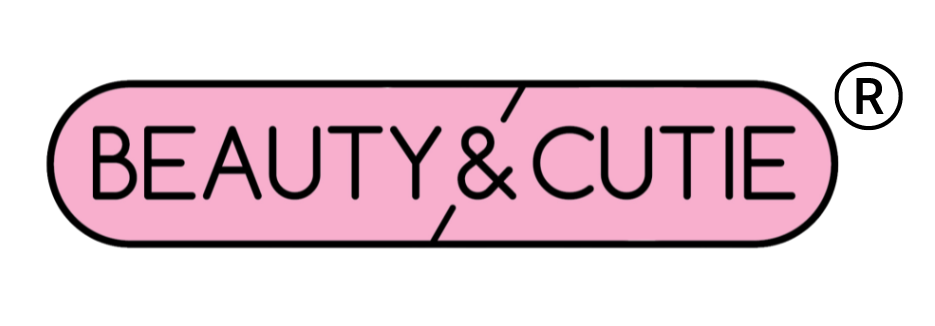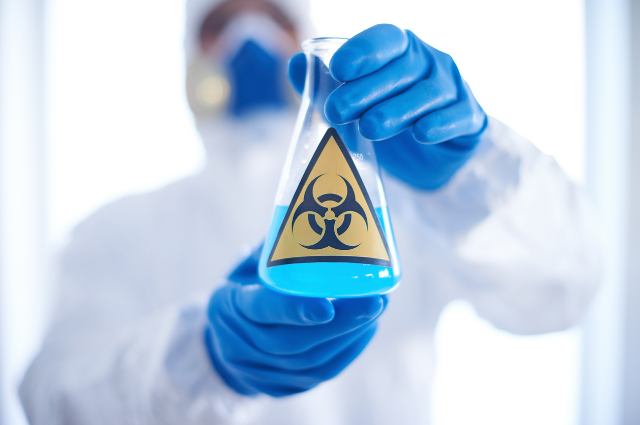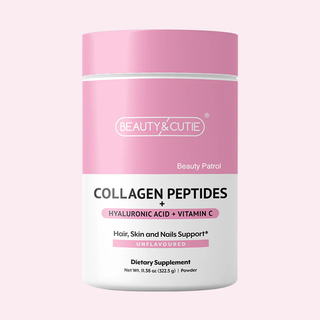When it comes to taking care of our skin, there are so many options available in the market. However, not all products are created equal. In fact, some skincare products contain harmful ingredients that can cause more harm than good. As consumers, it's important to educate ourselves on the ingredients to avoid in skincare and opt for natural alternatives. In this article, we'll be discussing the toxic ingredients commonly found in skincare products and how to find safer options for our skin. So, if you're looking to switch to healthier and more conscious skincare products, keep reading.
Is There a Comprehensive List Of Ingredients To Avoid In Skincare?
Yes, there is a lengthy and ever-growing list of ingredients that are potentially harmful to your skin and overall health. Many of these ingredients can be found in popular skincare products, so it's important to read the labels and do your research before making a purchase.
Some common toxic ingredients to avoid include parabens, phthalates, formaldehyde, sulfates, triclosan, and synthetic fragrances. These ingredients have been linked to a variety of health issues, including hormone disruption, skin irritation, and even cancer in some cases.
Instead, opt for products made with natural, organic, and plant-based ingredients to ensure that you're taking the best possible care of your skin. Remember, your skin is the largest organ in your body, so it's crucial to treat it with the utmost care and attention.
What Are Parabens?
Parabens are a type of preservative commonly used in skincare and cosmetic products to extend their shelf life. They are known to disrupt hormone function in the body, potentially leading to health issues such as breast cancer and reproductive problems.
Parabens mimic the hormone estrogen, which can lead to an imbalance in the body. While the FDA has deemed parabens safe in small concentrations, many experts suggest avoiding them altogether due to their potential risks.
Instead, look for skincare products that use natural preservatives like vitamin E or essential oils. By taking the time to educate yourself on the ingredients to avoid in skincare, you can make a more informed decision and choose products that are better for your health and overall well-being.
What Is Formaldehyde?
Formaldehyde is a colorless gas with a pungent odor that is often used in skincare and cosmetic products as a preservative. It may also be listed on the label as formalin, methanal, or methylene oxide.
While formaldehyde is effective at preventing bacterial growth in products, it is classified as a carcinogen by the International Agency for Research on Cancer. Exposure to formaldehyde can cause skin irritation, allergic reactions, and respiratory problems. Long-term exposure has been linked to an increased risk of cancer.
It's crucial to avoid skincare products that contain formaldehyde or any of its derivatives to protect your health. Instead, choose products made with natural, safer alternatives like plant-based preservatives or essential oils. By prioritizing your skin's health and avoiding toxic ingredients, you can achieve a healthier, glowing complexion while also promoting overall well-being.
What Are Sulfates?
Sulfates are an ingredient commonly used in skincare and cosmetic products to create a lathering effect. They are found in products like cleansers, shampoos, and body washes, but they should be avoided wherever possible.
Sulfates are known to be harsh on the skin, stripping away natural oils and causing irritation, dryness, and redness. In addition to their negative effects on the skin, sulfates such as sodium lauryl sulfate (or SLS) have potential health risks as well.
They can be contaminated with 1,4-dioxane, a toxic byproduct that has been linked to cancer and other health issues. Sulfates have also been known to disrupt the natural balance of the skin's microbiome, which can lead to increased sensitivity, acne, and other skin issues.
It's best to avoid sulfates in your skincare products to promote the health and vitality of your skin. Instead, opt for products made with natural, gentle ingredients that won't cause damage or irritation. Your skin will thank you for it!
What Is Triclosan?
Triclosan is an antibacterial agent that has been used in many skincare and personal care products, including soaps, toothpaste, and deodorant. However, there are many reasons why you should avoid this ingredient in your skincare routine.
Firstly, triclosan has been linked to hormone disruption, particularly in women, which can lead to a range of negative health effects. Additionally, triclosan is known to contribute to the emergence of antibiotic-resistant bacteria, reducing the effectiveness of antibiotics in the long run.
Finally, triclosan has been shown to have negative effects on the environment, particularly on aquatic ecosystems. For all of these reasons, it's best to avoid skincare products that contain triclosan and opt for natural alternatives that are better for your health and the planet.
Look for products made with essential oils, natural antioxidants, and other gentle ingredients that will help your skin thrive without exposing you to harmful chemicals. By making informed choices, you can support your skin's health and well-being while also protecting the environment for future generations.
Is There a Difference Between Synthetic and Natural Ingredients In Skincare Products?
Yes, there is a difference between synthetic and natural ingredients in skincare products. Synthetic ingredients are made in a laboratory and can be produced in large quantities at a lower cost. They can also have a longer shelf life and be more stable than natural ingredients. However, synthetic ingredients can also be harsh on the skin and may cause irritation or allergic reactions in some people.
On the other hand, natural ingredients are derived from plants, minerals, or animal products. They are often considered to be gentler on the skin and may provide additional benefits such as antioxidants, vitamins, and minerals. However, natural ingredients can also be more expensive and may have a shorter shelf life.
When choosing skincare products, it's important to consider both synthetic and natural ingredients and their potential benefits and drawbacks. Look for products with a balanced combination of synthetic and natural ingredients and always check the product's ingredient list before purchasing. Additionally, consider consulting with a dermatologist or skincare professional to determine the best ingredients for your specific skin type and concerns.
Other Ingredients To Avoid
As consumers become more health-conscious and eco-friendly, many are choosing to switch to natural skincare products. However, it's important to note that not all natural ingredients are safe, and some synthetic ingredients may be beneficial. When choosing skincare products, it's crucial to be aware of what ingredients to avoid. Here are some potentially harmful ingredients to steer clear of:
- BHT: BHT, or butylated hydroxytoluene, is a synthetic preservative commonly found in skincare products. It has been linked to potential health risks, such as endocrine disruption and skin irritation, making it a harmful ingredient to avoid in your skincare routine.
- Polyethylene Glycols: Polyethylene glycols (PEGs) are commonly used in skincare products as emulsifiers, thickeners, and solvents. However, they can be harmful to both your skin and the environment. PEGs are often contaminated with ethylene oxide, a known carcinogen, and can strip the skin of its natural oils, leading to dryness and irritation. Additionally, PEGs are non-biodegradable, which means they can contribute to pollution and harm aquatic life when they enter waterways. It's best to avoid skincare products that contain PEGs and opt for natural alternatives instead.
- Oxybenzone: Oxybenzone is a common chemical compound found in many skincare products, such as sunscreen, and should be avoided. It has been linked to potential health risks, such as hormone disruption and allergic reactions, and can also harm coral reefs and other marine life when washed off in the ocean.
- Aluminum: Aluminum is a toxic ingredient that should be avoided in skincare products. It has been linked to potential health risks, such as nervous system damage and hormone disruption, making it an ingredient to steer clear of in your skincare routine. Instead, opt for natural alternatives that are safer for both your skin and overall health.
- Synthetic colors: Synthetic dyes, often coal tar dyes, can cause skin irritation and allergic reactions.
- Sodium Laureth Sulfate (SLES): This is a harsh cleansing agent that can strip the skin of its natural oils and cause irritation.
- DMDM Hydantoin: DMDM hydantoin should be avoided in skincare products as it is a formaldehyde-releasing preservative that can cause skin irritation, allergic reactions, and potentially harm your overall health. It has been linked to cancer and has been banned in some countries, making it a harmful ingredient to avoid in your skincare routine.
- BHA: BHA, or beta hydroxy acid can be effective in treating acne and exfoliating the skin, but it can also cause irritation and sensitivity, making it a harmful ingredient to avoid in your skincare routine.
- Propylene Glycol: This is a petroleum-based ingredient that can cause skin irritation, allergic reactions.
- Diethanolamine (DEA): Diethanolamine, or DEA, is a chemical compound commonly used in skincare products as a foaming agent or emulsifier. However, it has been linked to skin and eye irritation, as well as potential carcinogenic effects, making it a harmful ingredient to avoid in your skincare routine.
- EDTA: EDTA, or ethylenediaminetetraacetic acid, is a synthetic compound commonly used in skincare products as a preservative or stabilizer. However, it should be avoided as it can harm aquatic life when washed off in waterways, and can also potentially irritate the skin and cause allergic reactions.
- Parfum: Parfum, also known as fragrance, is an ingredient that should be avoided in skincare products. It is a common irritant and can cause allergic reactions for those with sensitive skin. Additionally, many fragrances contain harmful chemicals that can disrupt hormones and cause other health problems. It is best to choose fragrance-free or naturally scented products to avoid these potential risks.
Conclusion
In conclusion, it is essential to avoid harmful ingredients in your skincare products and opt for natural alternatives whenever possible. Retinol, for example, is a healthy product that can improve your skin's texture and appearance.
However, it is crucial to check the ingredient list carefully and avoid ingredients such as synthetic colors, SLES, DMDM Hydantoin, BHA, Propylene Glycol, DEA, EDTA, and fragrance. These ingredients can cause skin irritation, allergic reactions, and harm your overall health.
By choosing natural alternatives and avoiding toxic ingredients, you can have healthy, radiant skin without compromising your well-being. Remember to read label information and choose products that are free from harmful chemicals and synthetic ingredients. Your skin and your health will thank you for it.
Final Thoughts
You deserve to feel radiant inside and out, and Beauty and Cutie are here to help. Our collagen powders are packed with premium peptides and amino acids to support healthy hair, glowing skin, and strong nails. Boosting natural cell renewal has never been easier. Enhance your beauty and confidence every day with Beauty and Cutie’s collagen!
Sources
- https://www.webmd.com/vitamins/ai/ingredientmono-1071/butylated-hydroxytoluene-bht
- https://www.news-medical.net/life-sciences/What-is-Polyethylene-Glycol-(PEG).aspx
- https://www.goddessgarden.com/what-is-oxybenzone-and-why-is-it-in-sunscreen/
- https://pubmed.ncbi.nlm.nih.gov/34396567/
- https://www.acs.org/molecule-of-the-week/archive/s/sodium-laureth-sulfate.html
- https://www.webmd.com/beauty/dmdm-hydantoin-what-to-know
- https://www.fda.gov/cosmetics/cosmetic-ingredients/beta-hydroxy-acids
- https://wwwn.cdc.gov/TSP/PHS/PHS.aspx?phsid=1120&toxid=240
- https://www.fda.gov/cosmetics/cosmetic-ingredients/diethanolamine
- https://www.ncbi.nlm.nih.gov/books/NBK565883/
- https://www.virginutty.co.uk/blog/skincare/parfum-toxic-ingredient


